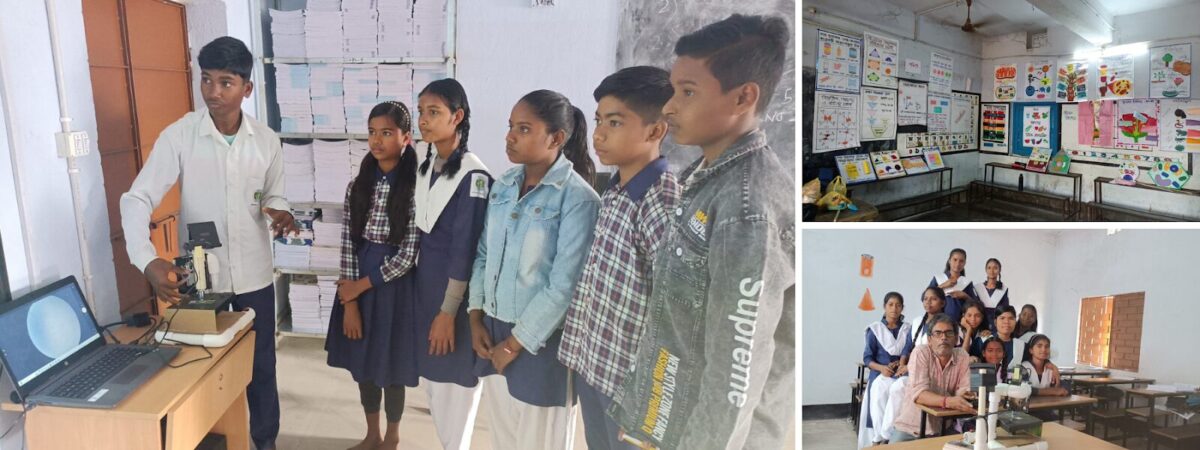
My school lacks educational amenities, so I motivate my students to create teaching and learning resources on their own by adopting frugal principles.
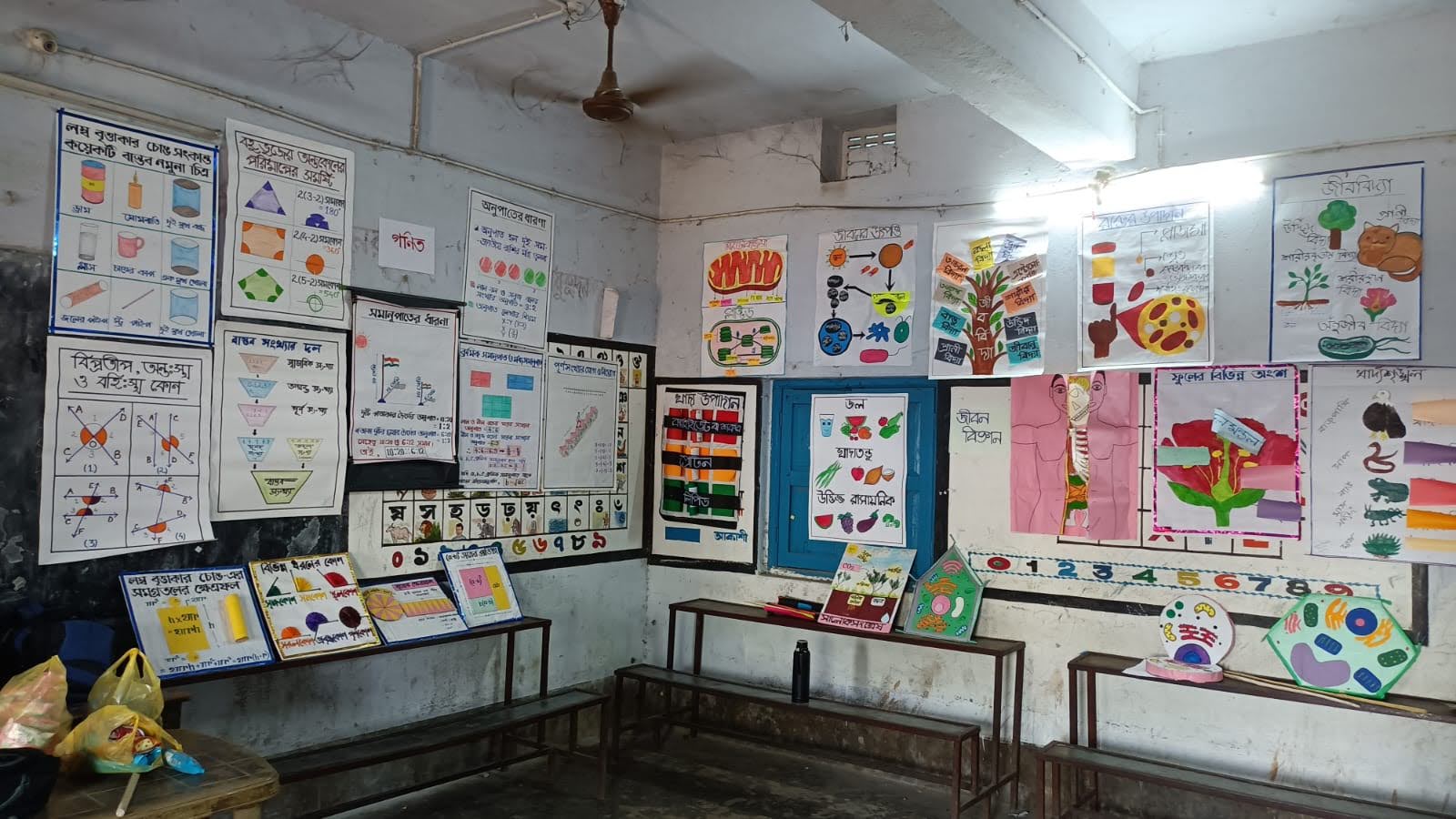
Student-designed teaching and learning materials.
They are involved in the process of reusing materials, which emphasizes minimalism, cost-consciousness, and resource efficiency. For example, adopting frugal principles, my students have already created Frugal Scopes, telescopes, an earthen fridge, a frugal air-conditioner, a frugal water-purifier, and a solar study table.
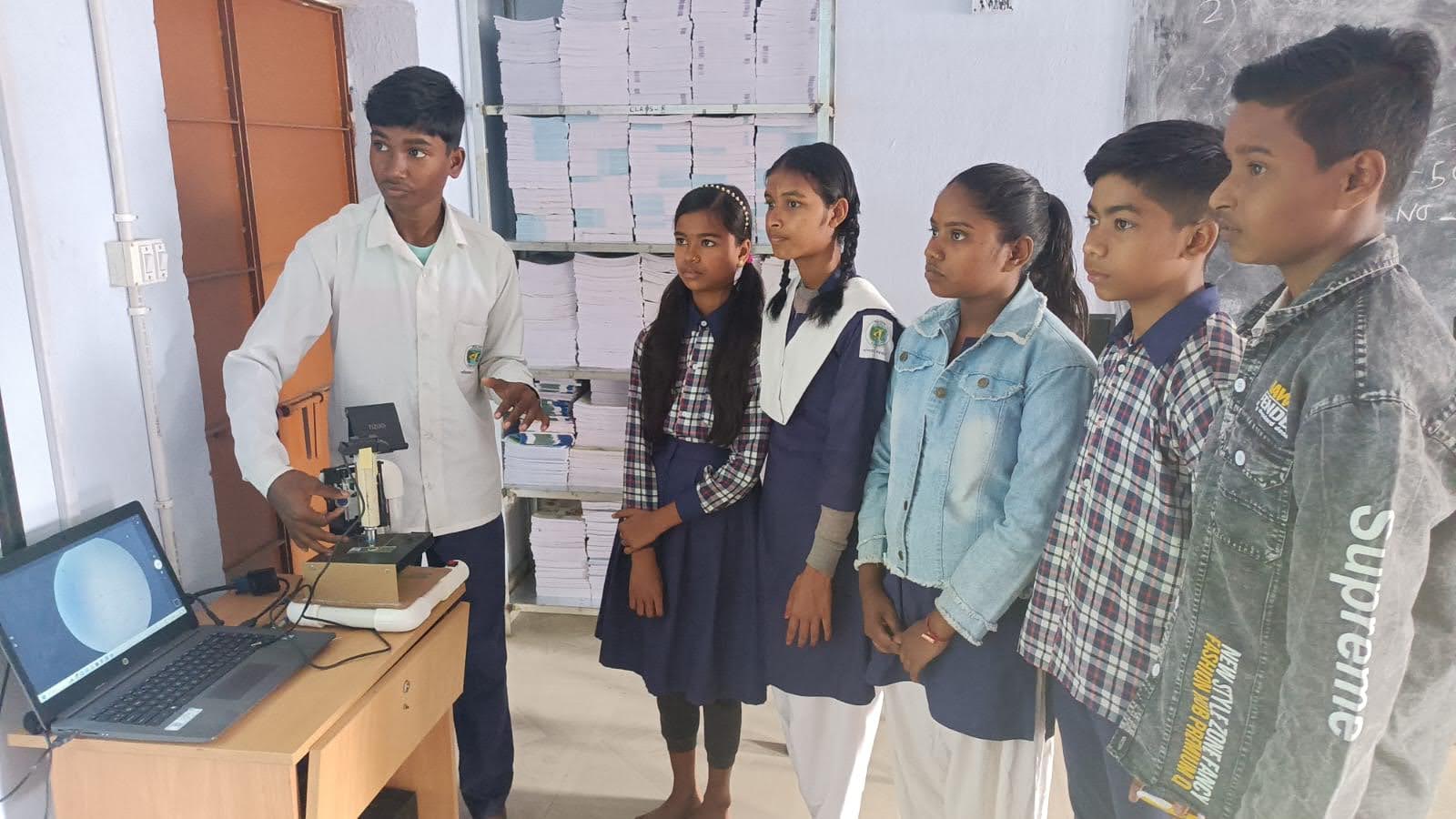
Students testing their Frugal Scope.
Listen to the caption.
In all of these projects, we are focused on getting the most value from reusing common waste materials. By integrating frugal principles into my teaching, I am able to teach my students the importance of resourcefulness, and model practical life skills that benefit them both inside and outside the classroom.
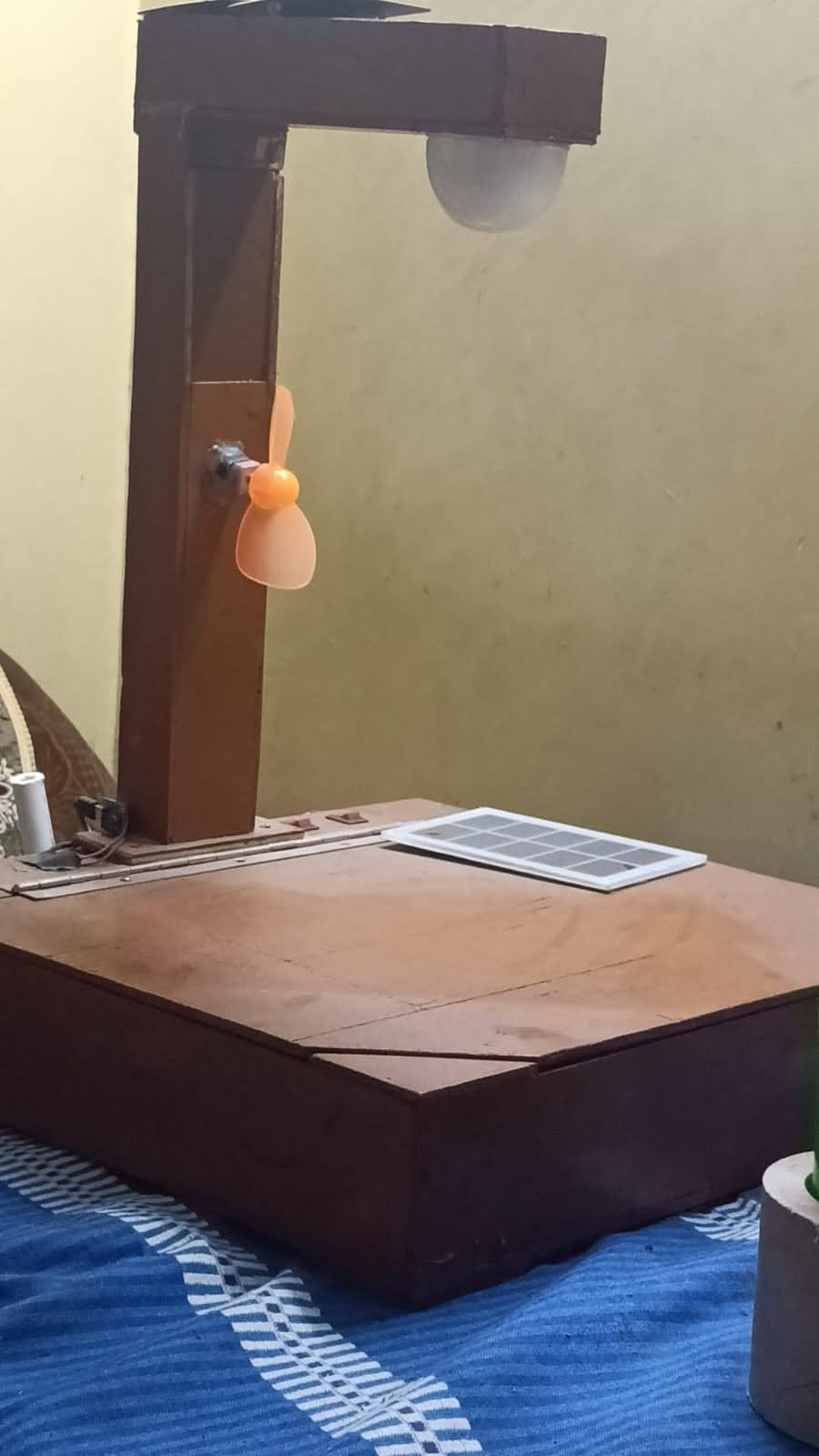
Student-designed solar lamp with fan and mobile charger.
Teaching students the concept of frugal innovation is valuable because it nurtures creativity, resourcefulness, and problem solving skills, particularly in the face of limited resources.
On weekends, I teach the parent community, and my students enjoy joining in to teach their own parents. Thus, they are involved in community service and local improvement projects which connect their learning to real-world experiences. These training sessions for parents help to bridge the gap between home and school, creating a supportive environment for the child.
We also work hard to create a supportive environment that allows students to learn practical skills without neglecting their family responsibilities. In one example, a student named Anima designed a water-purifier system using hollow bamboo pieces, bamboo-charcoal and a cotton membrane. Through testing, it proved to remove a majority of waterborne pollutants and purify water enough to make it safe to drink. Anima got the idea for her water-purifier system from her grandmother who always strains water using pure cotton clothes with bamboo charcoal. After working for several months, we got the desired result and named the purifier “Elixir.” The frugal approach has benefited her greatly and she has earned her multiple awards for her innovation.
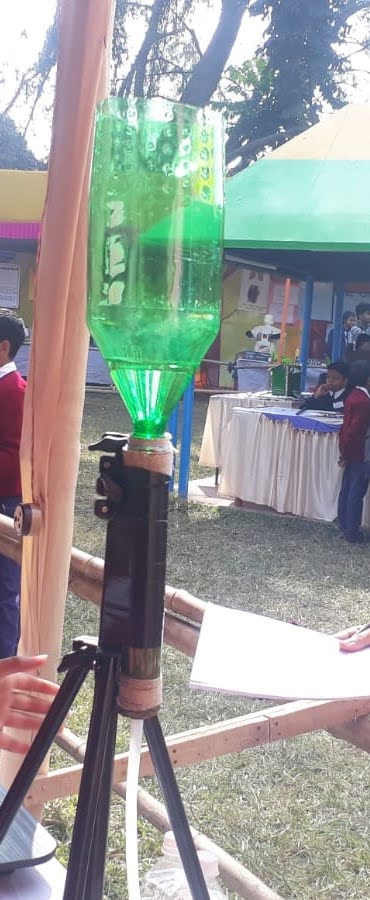
Student-designed water purification system.
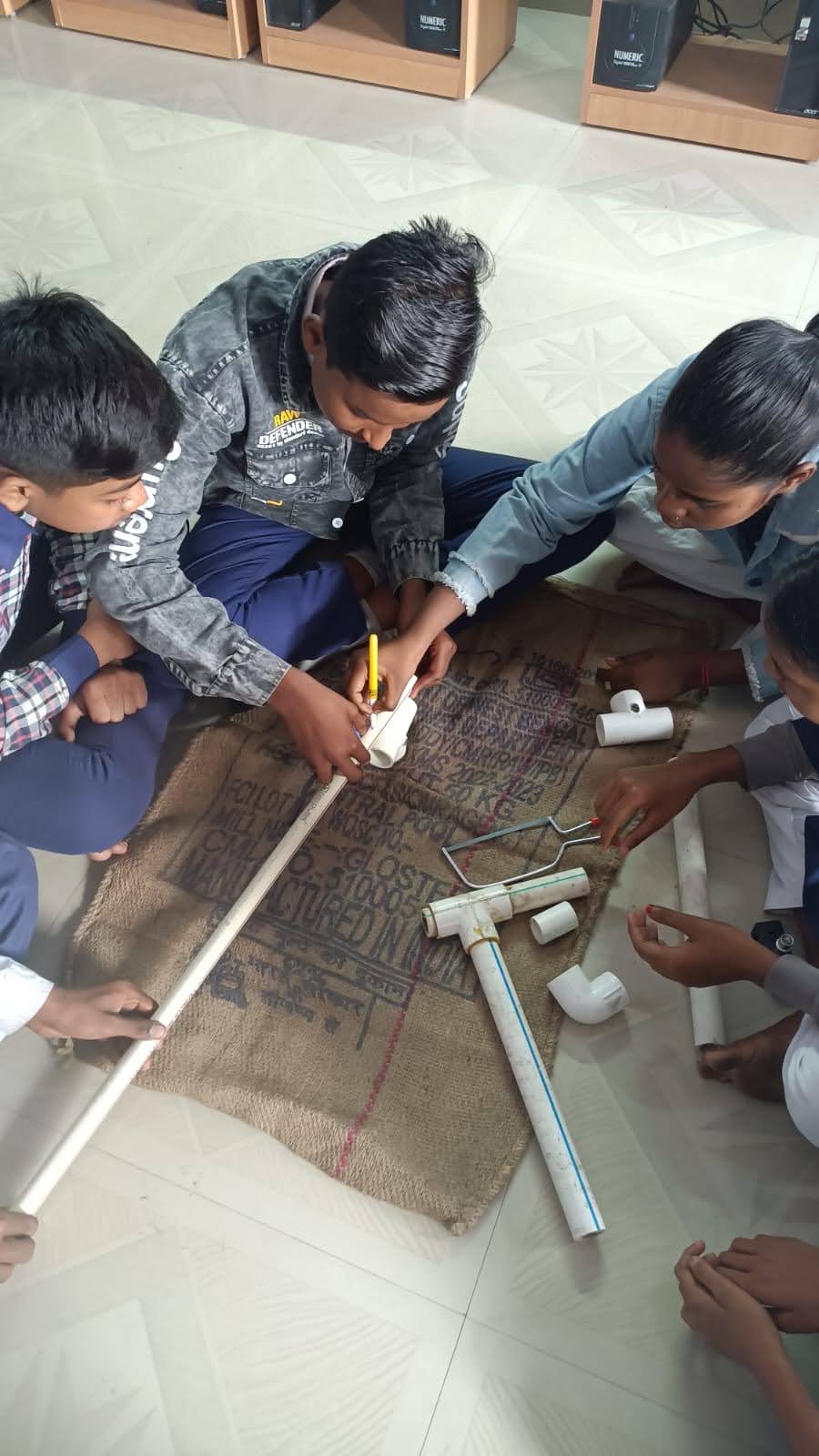
Students calculating the lengths of required pieces for their Frugal Scope
Listen to the caption.
By incorporating elements from science, math, art and social studies into our project activities, I am able to show how frugality can be applied in diverse contexts, creating well-rounded learning experiences. The leadership roles that students take on in planning and executing frugal projects fosters leadership skills and independence. My primary goal is to align future frugal projects with global sustainability goals and foster environmental consciousness among students, making education both practical and impactful.
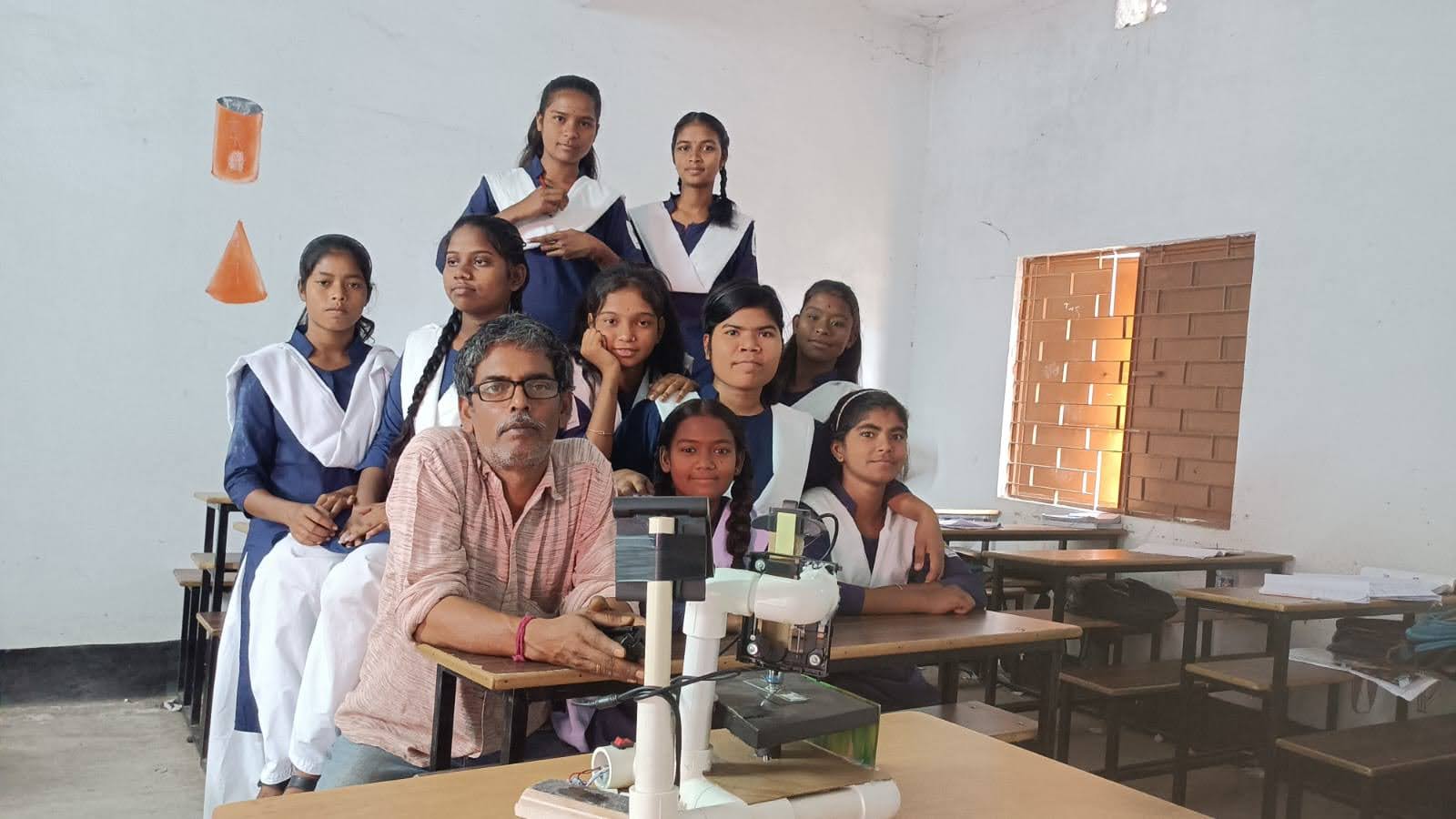
Sajal Ghosh with his students.